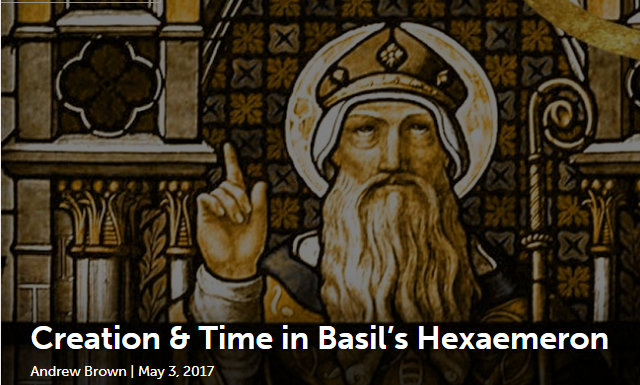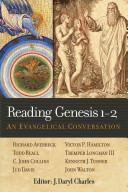No posts for three years? Um…in my defense, I was teaching Old Testament/Hebrew Bible, Biblical Hebrew, living, doing family, and writing a book, now published with Eerdmans, Recruiting the Ancients for the Creation Debate. It took way too long and now it’s complete and available here.

What is it trying to do? Let me compare it to my only/other book, The Days of Creation (now Brill, 2012). The latter book was a tidied-up version of my doctoral thesis with the University of Queensland, which surveyed Christian interpretation of the creation week of Genesis 1 in the Bible from pre-Christian through apostolic church history and beyond all the way down to the controversial British publication Essays and Reviews (1860). That was a treatment looking from the past forward and taking note not just of high-profile, well-remembered interpretive examples but of others at risk of being lost from consciousness, such as gnostic or esoteric interpretations. It tended towards over-compression of individual cases in the quest to be rather comprehensive. Some lines of interpretation, such as post-Mohammed Syrian and Persian examples, had to be sacrificed to permit completion within reasonable limits.

This is not the same book. It starts from modern times and looks back, and examples are included where they represent significant authorities utilized to buttress present-day positions on the meaning of biblical creation, once again with a focus on the creation week. Little-known or lost examples are not the focus this time, but rather those of acknowledged standing: the famous names, the Augustines and Basils and Aquinases and Calvins. Those chosen for inclusion are treated much more deeply, beginning with how they have been utilized in current debate. Then they are analyzed in their ancient context, their creation position is clarified, and their present use is critiqued for the quality of its use of history. I interpret ‘ancient’ rather broadly, very broadly, but restrict my coverage to those figures regarded as authoritative Christian interpreters by the debaters themselves, regardless of how justified that regard might seem. This means that coverage, in time, spans the liminal, pre-Christian yet influential figure of Philo Judaeus up to the eighteenth-century John Wesley, after which we are in the realm of modern commentary.
What is the driving point of this book? It is a problem with study of such ‘ancients’ that is described in this way by Donald Fairbairn, in a quote I reproduce in the book:
Very little modern study of patristic exegesis by biblical scholars and theologians actually starts with…a humble, teachable attitude. Most such scholarship is simply an attempt to give historical authority to our own methods.
Donald Fairbairn, “Patristic Exegesis and Theology: The Cart and the Horse,” Westminster Theological Journal 69, no. 1 (2007): 5-6.
This is the historiographic fallacy that I critique in this book with reference especially to the creation week, and extending it beyond patristic exegesis to later figures also suffering such anachronistic recruitment to a contemporary cause, notably a literal or else a figurative understanding of the creation week. The ‘ancients’ do have relevant things to say about this interpretive question, but until we return to them with questions rather than a self-confirmation agenda, we will not properly perceive them. As I assert in the book (concluding chapter 10):
“Until we read ancient writers with motivations that transcend the quest for self-confirmation, our understanding of them will always be shallow and deficient.”
If you are interested in important ancient precedents for literal or figurative interpretations of biblical creation, modern-day creation debates overall, or this phenomenon of recruiting ancient authorities in general, you should enjoy this book. I feel sure you’ll find some interesting path to explore.
Andrew B.



